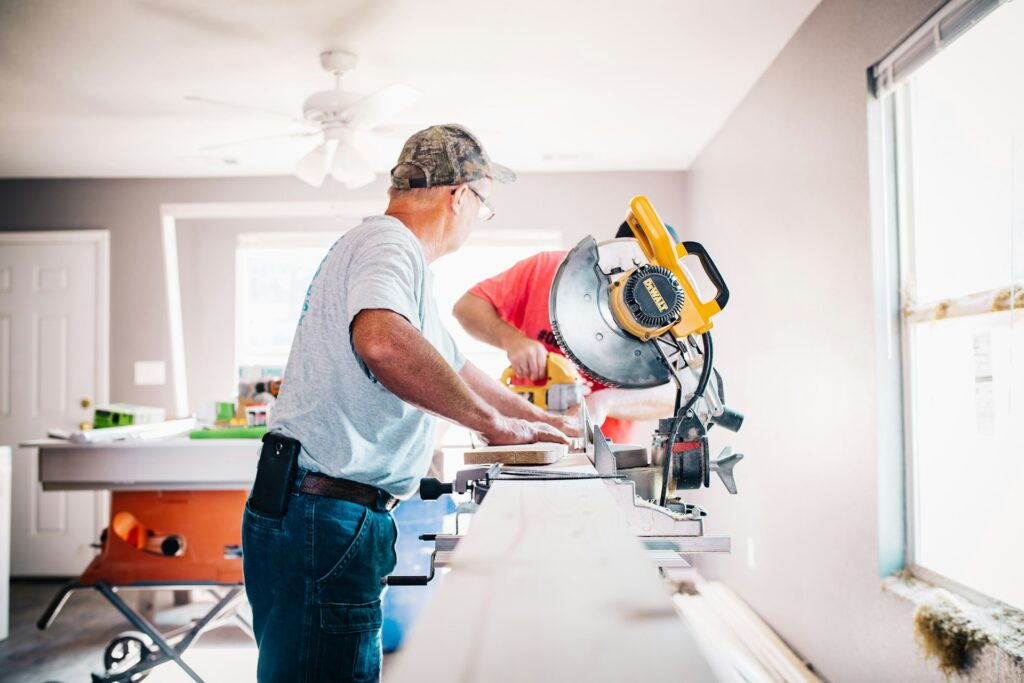Introduction: Are you considering revamping your living space? Home renovation is not just about giving your house a new look; it’s about enhancing comfort, functionality, and value. In this comprehensive guide, we’ll delve into various aspects of home renovation, from planning and design to execution and beyond.
Planning Stage
Before diving into the renovation process, meticulous planning is crucial. Here’s what you need to consider:
Assessing Needs and Goals
Determine what you aim to achieve with the renovation. Are you looking to increase space, improve aesthetics, or enhance functionality?
Setting Budget and Timeline
Establish a realistic budget and timeline for your renovation project. Factor in unforeseen expenses and allow for some buffer time.
Research and Inspiration
Gather inspiration from home décor magazines, websites, and social media platforms. Create a vision board to visualize your ideas.
Hiring Professionals
Decide whether you’ll hire contractors, architects, or interior designers for the project. Research and interview potential candidates to find the right fit.
Obtaining Permits
Check local regulations to determine if permits are required for your renovation project. Failure to obtain necessary permits can result in fines or project delays.
Design Phase
Once the planning stage is complete, it’s time to delve into the design phase. Here’s what you need to consider:
Conceptualization
Work with a designer or architect to conceptualize the layout and design of your renovated space. Consider factors such as flow, functionality, and aesthetics.
Material Selection
Choose materials that not only align with your design aesthetic but also offer durability and functionality. Consider factors such as cost, maintenance, and eco-friendliness.
Color Palette and Finishes
Select a cohesive color palette and finishes that tie the space together. Consider factors such as lighting, ambiance, and personal preferences.
Space Optimization
Maximize space efficiency by incorporating clever storage solutions, multipurpose furniture, and strategic layout designs.
Sustainability Considerations
Explore eco-friendly design options such as energy-efficient appliances, sustainable building materials, and water-saving fixtures.
Execution Phase
With the planning and design in place, it’s time to bring your renovation vision to life. Here’s what to expect during the execution phase:
Demolition and Preparation
Prepare the space for renovation by clearing out existing fixtures, furniture, and debris. Ensure proper safety measures are in place during demolition.
Structural Work
Address any structural issues or modifications required before proceeding with the renovation. This may include structural reinforcements or alterations.
Plumbing and Electrical
Install or update plumbing and electrical systems as needed. Ensure compliance with building codes and safety standards.
Construction and Installation
Undertake the construction work, including framing, drywall installation, flooring, and cabinetry. Hire skilled contractors for specialized tasks such as carpentry and masonry.
Finishing Touches
Add finishing touches such as paint, wallpaper, trim, and fixtures to complete the look of your renovated space.
Post-Renovation
Congratulations, your renovation project is complete! Here are some important steps to wrap up the process:
Inspection and Quality Assurance
Conduct a thorough inspection of the renovated space to ensure everything meets your expectations and complies with building codes.
Final Payments and Documentation
Settle any outstanding payments with contractors and vendors. Obtain warranties, receipts, and permits for future reference.
Maintenance and Care
Develop a maintenance plan to preserve the beauty and functionality of your newly renovated space. Regular cleaning, repairs, and upkeep are essential.
Enjoy Your New Space
Finally, take the time to enjoy and appreciate your newly renovated home. Whether it’s hosting gatherings, relaxing with family, or simply admiring the transformation, make the most of your revitalized space.
FAQs
Q: How long does a home renovation typically take?
A: The duration of a home renovation project depends on various factors, including the scope of work, size of the space, and unforeseen challenges. On average, a moderate renovation can take anywhere from a few weeks to several months to complete.
Q: How can I minimize costs during a home renovation?
A: To minimize costs during a home renovation, consider prioritizing essential upgrades, obtaining multiple quotes from contractors, sourcing materials wisely, and being flexible with your design choices. Additionally, proper planning and budgeting can help prevent overspending.
Q: Do I need to hire professionals for my home renovation project?
A: While some homeowners opt for a DIY approach to renovation, hiring professionals such as contractors, architects, and interior designers can ensure quality workmanship, adherence to building codes, and timely completion of the project. Assess your skills, budget, and time availability before deciding.
Q: How can I ensure my home renovation is eco-friendly?
A: To make your home renovation eco-friendly, consider incorporating sustainable building materials, energy-efficient appliances, low VOC paints, and water-saving fixtures. Additionally, minimize waste by repurposing or recycling materials whenever possible.
Q: What should I do if I encounter unexpected challenges during my renovation?
A: Unexpected challenges are common during home renovations. It’s essential to remain flexible, communicate effectively with your contractors, and be prepared to adjust your plans as needed. Having a contingency fund and timeline buffer can also help mitigate unforeseen issues.
Conclusion
Home renovation is a rewarding journey that allows you to transform your living space according to your needs and preferences. By following these comprehensive guidelines, you can navigate the renovation process with confidence and achieve your desired outcomes.

